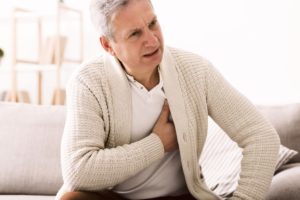 If you feel tired, irritable, or have low energy, it may be due to an irregular heartbeat. These common symptoms belong to a syndrome called burnout, which is associated with a potentially deadly heart rhythm disturbance.
If you feel tired, irritable, or have low energy, it may be due to an irregular heartbeat. These common symptoms belong to a syndrome called burnout, which is associated with a potentially deadly heart rhythm disturbance.
An estimated 17 million American’s experience atrial fibrillation, the most common form of heart arrhythmia. Atrial fibrillation (AF or A-fib) is an abnormal heart rhythm (arrhythmia) characterized by the rapid and irregular beating of the atrial chambers of the heart. During atrial fibrillation, the heart’s two upper chambers (the atria) beat chaotically and irregularly out of coordination with the two lower chambers (the ventricles) of the heart. This type of heartbeat can increase the risk of stroke, heart failure, and other heart-related complications.
Advertisement
What causes atrial fibrillation is not fully understood, but some suggest psychological distress could be a risk factor. Until now, the specific association between vital exhaustion and atrial fibrillation had not been evaluated.
Prolonged Stress to Blame
“Vital exhaustion, commonly referred to as burnout syndrome, is typically caused by prolonged and profound stress at work or home,” said study author Dr. Parveen K. Garg of the University of Southern California in Los Angeles. “It differs from depression, which is characterized by low mood, guilt, and poor self-esteem. The results of our study further establish the harm that can be caused in people who suffer from exhaustion that goes unchecked.”
The study published in the European Journal of Preventive Cardiology surveyed more than 11,000 individuals for the presence of vital exhaustion, poor social support, anger, and antidepressant use. All participants were then followed for a period of 25 years for the development of atrial fibrillation. It was noted that participants with the highest levels of vital exhaustion were at a 20% higher risk of developing atrial fibrillation over the course of follow-up compared to those with little or no evidence of vital exhaustion.
Dr. Garg noted that two mechanisms are likely at play. “Vital exhaustion is associated with increased inflammation and heightened activation of the body’s physiologic stress response,” he said. “When these two things are chronically triggered that can have serious and damaging effects on the heart tissue, which could then eventually lead to the development of this arrhythmia.”
No connections to the development of atrial fibrillation were found with anger, antidepressant use, or poor social support. “The findings for anger and social support are consistent with prior research but two previous studies did find a significant association between antidepressant use and an increased risk of atrial fibrillation. Clearly, more work still needs to be done,” said Dr. Garg.
He concluded: “It is already known that exhaustion increases one’s risk for cardiovascular disease, including heart attack and stroke. We now report that it may also increase one’s risk for developing atrial fibrillation, a potentially serious cardiac arrhythmia. The importance of avoiding exhaustion through careful attention to—and management of—personal stress levels as a way to help preserve overall cardiovascular health cannot be overstated.”
